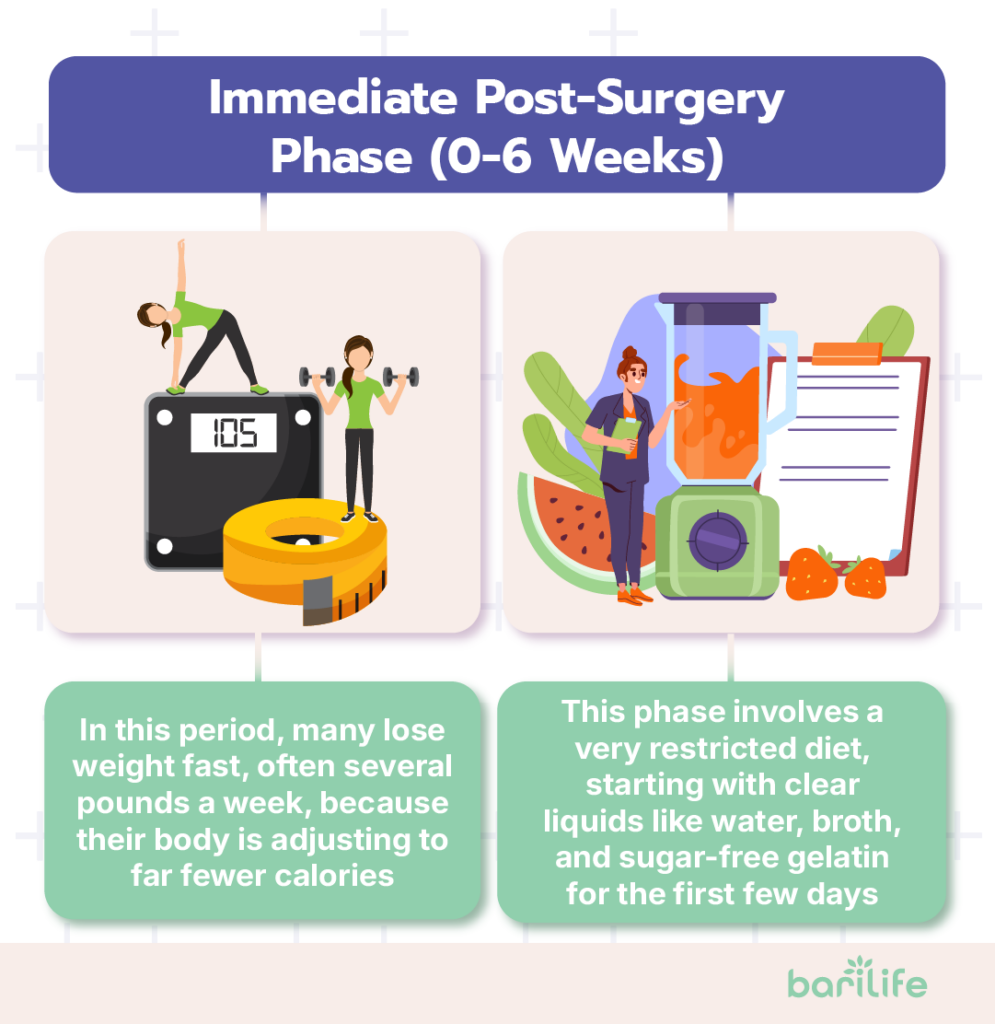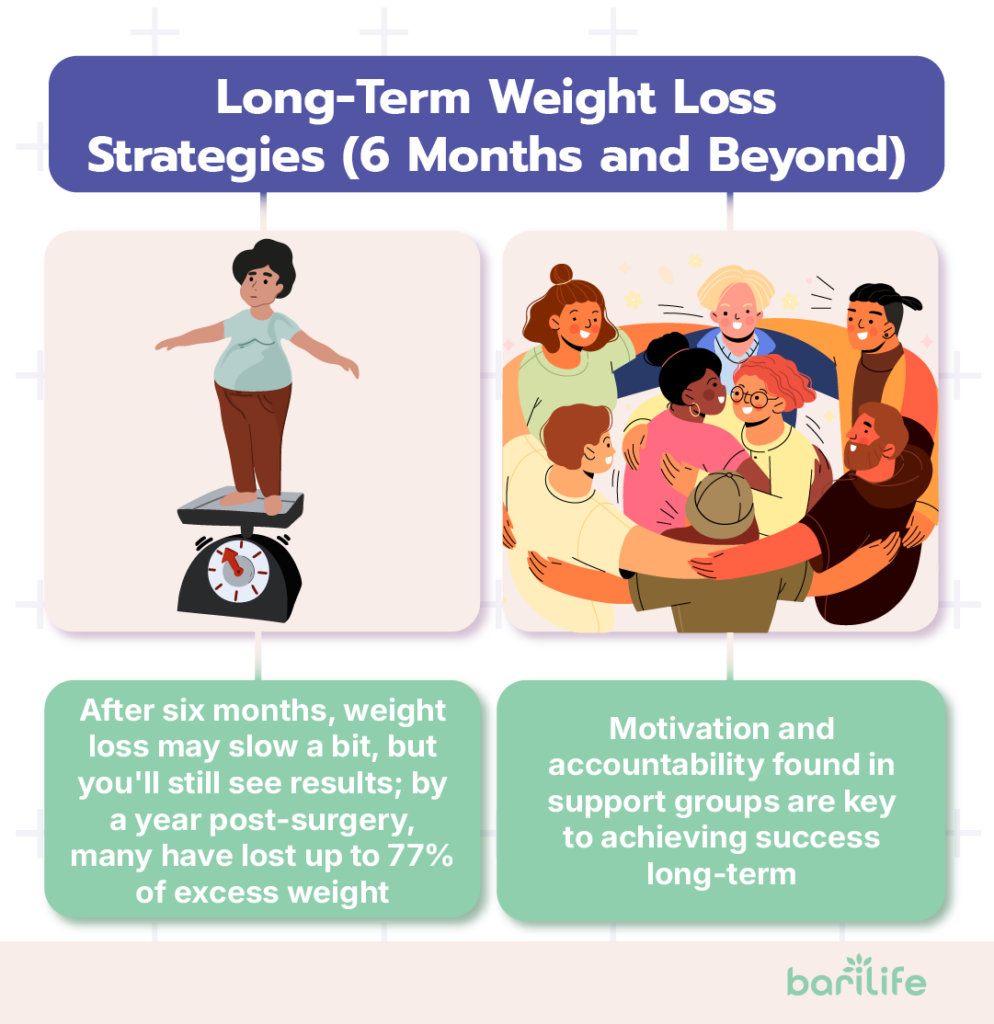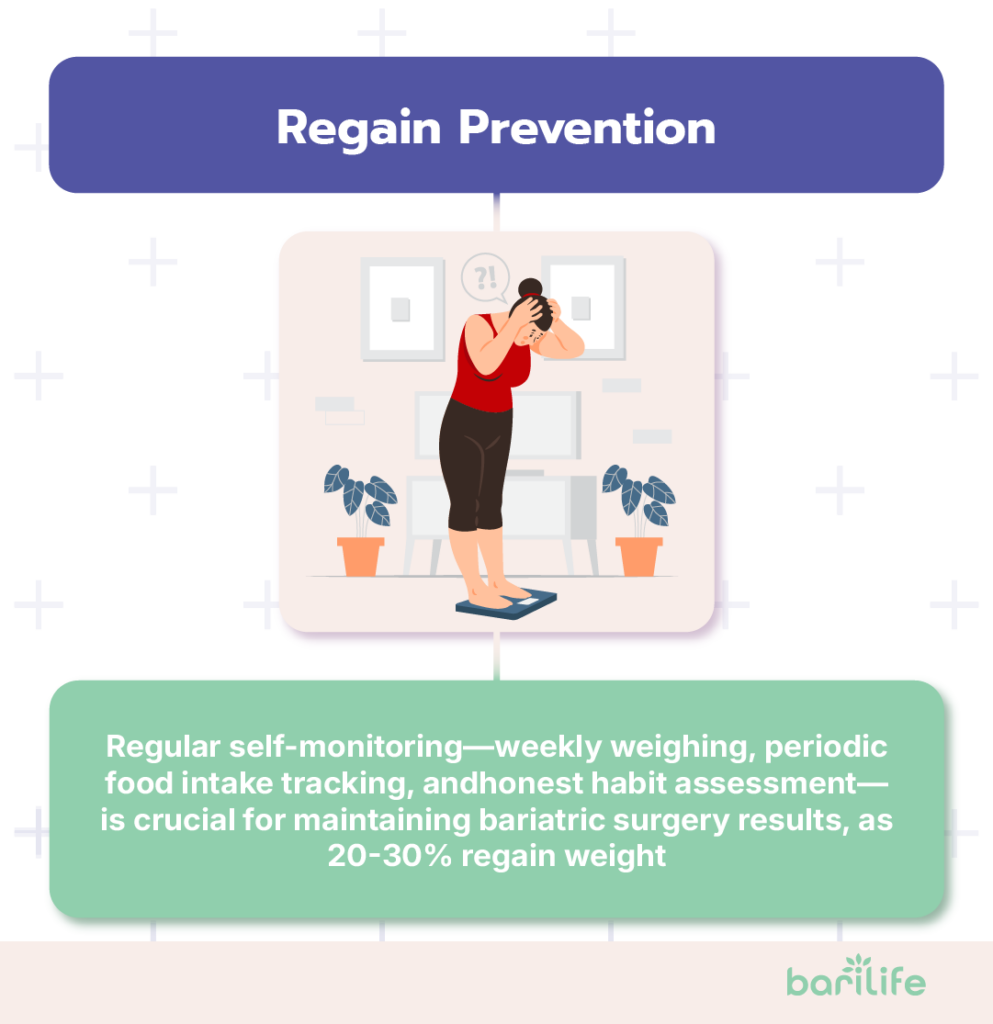Key Takeaways:
- During the first few months after bariatric surgery, you can expect to see the most dramatic weight loss result.
- Long-term success depends on following proper nutrition guidelines, staying physically active, and maintaining regular follow-up care.
- While weight loss plateaus are a normal part of the weight loss process, implementing strategies such as adjusting your diet, varying your exercise routine, and managing stress can help overcome them.
Considering bariatric surgery or have already had the procedure? You’re probably wondering exactly how much weight you can expect to lose. It’s one of the most common questions people have regarding this life-changing procedure. After all, knowing what to expect can help you set achievable goals and stay inspired in your journey.
The truth is that the amount of weight loss after bariatric surgery differs from person to person. Factors like your starting weight, the type of surgery you have, how closely you follow post-surgery guidelines, and even your genetics all play a role. Let’s look at what you can actually expect during each phase of your weight loss journey.
Table of Contents
Immediate Post-Surgery Phase (0-6 Weeks)

The first six weeks after surgery are critical for setting the foundation for successful weight loss. During this time, most people lose weight quickly, often several pounds per week. This happens because your body is adjusting to the dramatically reduced calorie intake.
Your diet during this phase will be highly restricted. For the first few days after surgery, you’ll start with clear liquids like water, broth, and sugar-free gelatin. Then, you’ll progress to full liquids like protein shakes, strained soups, and sugar-free pudding.
Staying hydrated during this period is crucial. The goal is to sip fluids consistently throughout the day. Your medical provider will provide guidance on the daily intake you need. Avoid carbonated beverages completely as these can cause uncomfortable gas and bloating.
Protein becomes your priority once you move beyond clear liquids. Most people need 60-80 grams of protein daily, which can be challenging with your limited intake. Protein shakes that are designed for bariatric surgery can be extremely helpful during this phase.
When you begin introducing pureed foods (usually around week three or four), you need to chew everything thoroughly, even though it’s pureed! This helps you develop good habits for later.
Your medical team will also be doing regular check-ups during this early phase. They will monitor your healing, help manage any discomfort, and ensure you are on track with your bariatric weight loss progress.
Transition to Solid Foods and Nutritional Strategies (6 Weeks – 6 Months)
Around the six-week mark, you’ll likely begin transitioning to soft, easy-to-digest foods and eventually to regular textures. This period is when many people experience their most dramatic weight loss. Many people lose as much as 60% of their excess weight by six months after surgery, answering the common question of how fast do you lose weight after bariatric surgery.
Instead of three large meals, aim for five to six smaller meals throughout the day. This helps maintain your energy levels and prevents you from getting too hungry, which can lead to poor food choices or overeating.

Protein remains your top nutritional priority. Choose high-quality sources, such as:
- Eggs
- Poultry
- Fish
- Low-fat dairy
- Legumes
Always eat your protein first at each meal to ensure you meet your daily needs before getting full.
You’ll need to be especially careful about foods high in sugar and unhealthy fats. These can cause dumping syndrome—a very unpleasant reaction that can include nausea, vomiting, diarrhea, dizziness, and fatigue. Consider this a blessing in disguise—it helps you avoid foods that could derail your weight loss!
Although you’re eating more frequently now, maintaining a healthy fluid intake remains important. But remember to separate your fluid intake from your meal times by 30 minutes.
Taking your vitamins and minerals is non-negotiable. Your reduced food intake and altered digestive system mean it’s nearly impossible to obtain all the necessary nutrients from food alone. These supplements help prevent serious deficiencies that could affect your health.
Long-Term Weight Loss Strategies (6 Months and Beyond)
You may notice a slight slowing in weight loss after six months, but you can still expect to see results. By 12 months after surgery, many people have an average weight loss after bariatric surgery up to 77% of their excess weight.
A balanced, nutrient-dense diet becomes your long-term focus. Include plenty of lean proteins, vegetables, fruits, and healthy fats. Some whole grains and starches can be included in small amounts if tolerated.
Physical activity is also increasingly important for continued weight loss. Try to go for at least 150 minutes of moderate exercise weekly (30 minutes, 5 days a week), plus strength training 2-3 times weekly to preserve muscle mass. Find activities you genuinely enjoy—this makes it much easier to stay consistent.
Portion control should also be observed even years after surgery. Your stomach can gradually stretch over time, allowing you to eat more. Using smaller plates, measuring portions, and stopping when you feel satisfied (not full) helps prevent this.

Many people find that support groups offer motivation and accountability, which are essential for achieving long-term success. Hearing other people’s experiences and sharing your own can help you stay on track when you’re not as motivated.
You will also undergo regular medical follow-ups. These check-ups enable your medical team to monitor your nutritional status, weight maintenance, and overall health.
Dealing with Weight Loss Plateaus
Almost everyone experiences periods where weight loss stalls. These plateaus are normal and temporary, but they can be frustrating.
Start by honestly reassessing your calorie intake. “Calorie creep” occurs when portion sizes gradually increase or you start incorporating higher-calorie foods. Tracking down your food intake for a week can help identify these patterns.
You want to shake up your exercise routine to challenge your body in new ways. If you’ve been walking, try swimming or cycling. If you haven’t been strength training, consider adding it to your routine. Muscle burns more calories than fat, even when you’re at rest.
Increasing your protein intake can also help break through plateaus.
Don’t underestimate the importance of adequate sleep (7-9 hours nightly) and stress management. Both can significantly impact your hormone levels, particularly those that regulate hunger and fat storage. Activities like meditation, yoga, or simply taking time for hobbies you enjoy can help manage stress.
How much weight can you lose with bariatric surgery during plateaus? Sometimes none—and that’s okay! Plateaus are normal and temporary. Instead, focus on healthy habits, and the weight loss will resume.
Regain Prevention
About 20-30% of people regain significant weight after bariatric surgery. Regular self-monitoring is one of the most effective strategies for maintaining your results. Weigh yourself weekly (not daily), track your food intake periodically, and honestly assess your habits if you notice the scale creeping up.

Set realistic goals focusing on healthy behaviors rather than just numbers on the scale. For example, aim to exercise five days this week or prepare healthy meals at home instead of eating out.
Continuing with support groups provides accountability and motivation. Many people find that staying connected with the bariatric community helps them maintain focus years after surgery.
Also, identify your personal “trigger foods”—items that you tend to overeat or that stimulate cravings for other unhealthy foods. Some common triggers include alcohol, sugary treats, salty snacks, and refined carbohydrates.
If you struggle with emotional eating or find it hard to maintain healthy habits, don’t hesitate to seek professional guidance.
Conclusion
The journey of how to lose weight after bariatric surgery involves several phases, from the rapid weight loss immediately after the procedure to the more gradual loss and eventual maintenance phase.
While plateaus and challenges are normal parts of the process, following proper nutritional guidelines, staying physically active, and maintaining regular follow-up care will help you achieve the best possible results.
By being proactive about your health, you can maximize your weight loss and transform your life.
How Bari Life Can Help
Proper nutrition is one of the biggest challenges after bariatric surgery, but Bari Life makes it easier with supplements specifically designed for bariatric patients. Whether you’re looking for bariatric vitamins to support overall health or convenient bariatric protein shakes to hit your protein goals, we have you covered.
Our complete bariatric multivitamins formulations provide all the essential nutrients you need in forms your body can actually absorb after surgery. For those who prefer easier options, we also offer bariatric vitamins chewable for simple, effective supplementation. Our bariatric calcium chews ensure you meet critical calcium needs post-surgery, while our bariatric multivitamin with iron supports both nutrient absorption and energy levels.
In addition to foundational vitamins, Bari Life offers bariatric protein bars and bariatric snacks that make it easy to maintain healthy eating habits without sacrificing flavor. For patients concerned about nutrient-specific issues, we also provide a specialized bariatric probiotic to aid digestion and a range of bariatric vitamins for hair loss to help you maintain hair health during weight loss.
If you prefer liquid options, our liquid bariatric vitamin makes meeting your nutritional goals even more convenient. Our bariatric protein shakes not only help you reach your daily protein goals without the guesswork but also support continued weight loss while preserving muscle mass.
Visit Bari Life today to discover how our specialized bariatric vitamins, supplements, and snacks can help you reach your goals and maintain your results for years to come!
Resources
Adult Activity: An Overview. (2023). CDC.



What are your tips and tricks to post-bariatric success?